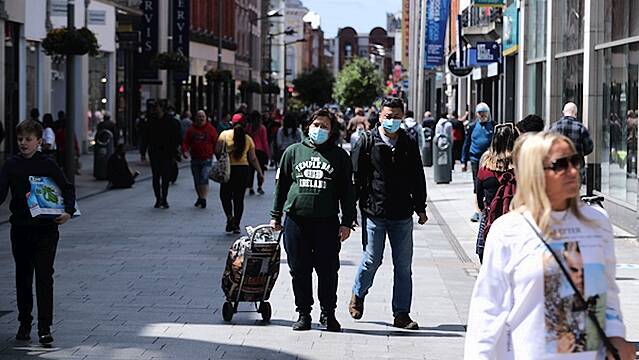The slump in activity, detailed in the latest quarterly national accounts from the Central Statistics Office (CSO), was less than the euro zone average of 12%.
However, the decline was still the sharpest on record, surpassing the 4.7% drop suffered in the fourth quarter of 2008.
The figures show personal consumption of goods and services, a key measure of domestic economic activity, decreased by 19.6% in the quarter as shops, bars and restaurants were closed to curb the spread of the virus.
The CSO said sectors focused on the domestic market experienced significantly lower levels of economic activity in the quarter with construction contracting by 38.3% and the distribution, transport, hotels and restaurants sector contracting by 30.3%.
Responding to the quarterly accounts, Minister for Finance Paschal Donohoe said: “The hit was not as severe as many of our trading partners, for instance the UK, euro zone and the US where GDP declined by over 20, 12 and 9 per cent respectively in the same period.”
“Overall the numbers are broadly as expected based on dataflow on the second quarter released over the course of the summer,” Mr Donohoe said.
“They very much highlight the dual economic impact of the pandemic with net exports positively contributing to GDP in year-on-year terms on the back of robust growth in pharma exports, while the domestic economy suffered a severe hit.
“Despite the severity of the national lockdown, a large portion of manufacturers continued to trade and this is reflected in our export numbers,” he said.
“However many of our jobs-rich domestic sectors were temporarily closed giving rise to the large contraction in domestic demand seen today.”







